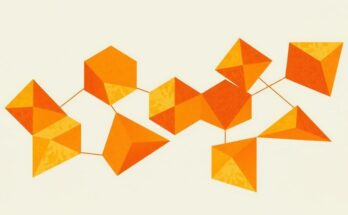Congo cut diplomatic ties with Rwanda amid escalating violence from M23 rebels closing in on Goma, resulting in at least 13 casualties and thousands displaced. Accusations against Rwanda for supporting M23 persist, but Rwanda denies involvement. The DRC military, with U.N. assistance, is engaged in combat with rebels, while the humanitarian crisis worsens, prompting urgent international attention.
The Democratic Republic of Congo has severed diplomatic relations with Rwanda amid intensifying clashes between Rwandan-backed M23 rebels and government forces near Goma, a key city in the eastern region. As the conflict escalated, at least 13 personnel, including peacekeepers, have lost their lives, and thousands of civilians have been displaced from their homes. The M23 group has captured significant territory close to the border with Rwanda, threatening Goma, which houses approximately 2 million people.
The DRC, alongside the United States and U.N. experts, alleges that Rwanda supports the M23 rebels, primarily consisting of ethnic Tutsis who have separated from the Congolese army. This conflict is part of a larger struggle involving around 100 armed groups competing for influence in the mineral-rich eastern Congo, where ongoing violence has led to a severe humanitarian crisis.
While Rwanda has denied backing these rebel forces, it confirmed last year that it maintains troops and missile systems in eastern Congo to safeguard its own security, citing concerns over a buildup of Congolese military near its borders. U.N. estimates suggest that as many as 4,000 Rwandan soldiers may be operating within Congolese territory.
Following the recent outbreak of violence, the Congolese foreign ministry announced it would cut diplomatic ties with Rwanda and withdraw its diplomatic staff. In response, the U.N. Security Council convened an emergency meeting, which was moved forward to address the escalating situation.
On Sunday, residents reported heavy gunfire in Goma, prompting many displaced people from Kanyaruchinya camp, located near the Rwandan border, to flee southwards toward the city. Civilians expressed fears for their safety, with reports of violent clashes at the border making them uneasy about seeking refuge in Goma.
Numerous individuals attempted to cross into Rwanda, seeking safety as the violence continued to pose a threat in Goma. Local residents voiced concerns about the security situation, indicating uncertainty about their safety even after crossing the border. The previous week, M23 had seized control of Sake, only 27 kilometers away from Goma, prompting fears that Goma could be next.
Congo’s military has claimed to repel M23 assaults with assistance from allied forces, including U.N. troops and the Southern African Development Community Mission (SAMIDRC). Recent reports confirm that multiple peacekeepers from South Africa, Uruguay, and Malawi lost their lives in the escalating conflict over the last few days.
Since 2021, the DRC government and allied forces, including SAMIDRC and U.N. troops, have successfully managed to keep M23 at bay. The U.N. peacekeeping force, known as MONUSCO, has been stationed in the region for over two decades, currently deploying around 14,000 peacekeepers to assist in stabilizing the area.
The ongoing conflict in the eastern Democratic Republic of Congo is characterized by the involvement of numerous armed groups, with the M23 rebel group being one of the most prominent. This conflict has drawn international scrutiny due to allegations against Rwanda for its support of these rebels. The humanitarian situation is dire, with millions affected by the violence and displacement, underscoring the need for effective diplomatic resolutions and interventions to address the root causes of instability in the region.
The situation in the Democratic Republic of Congo remains precarious as diplomatic relations with Rwanda dissolve amid renewed conflict and rising civilian displacement. Efforts from local and international forces, including the U.N., to mitigate the M23 threat have proven challenging in the face of increased violence. As the humanitarian crisis deepens, it is crucial for the international community to urgently address the dynamics at play to restore peace and stability. The ramifications of this conflict extend beyond regional security, highlighting the urgent need for sustainable resolution methods.
Original Source: www.voanews.com




